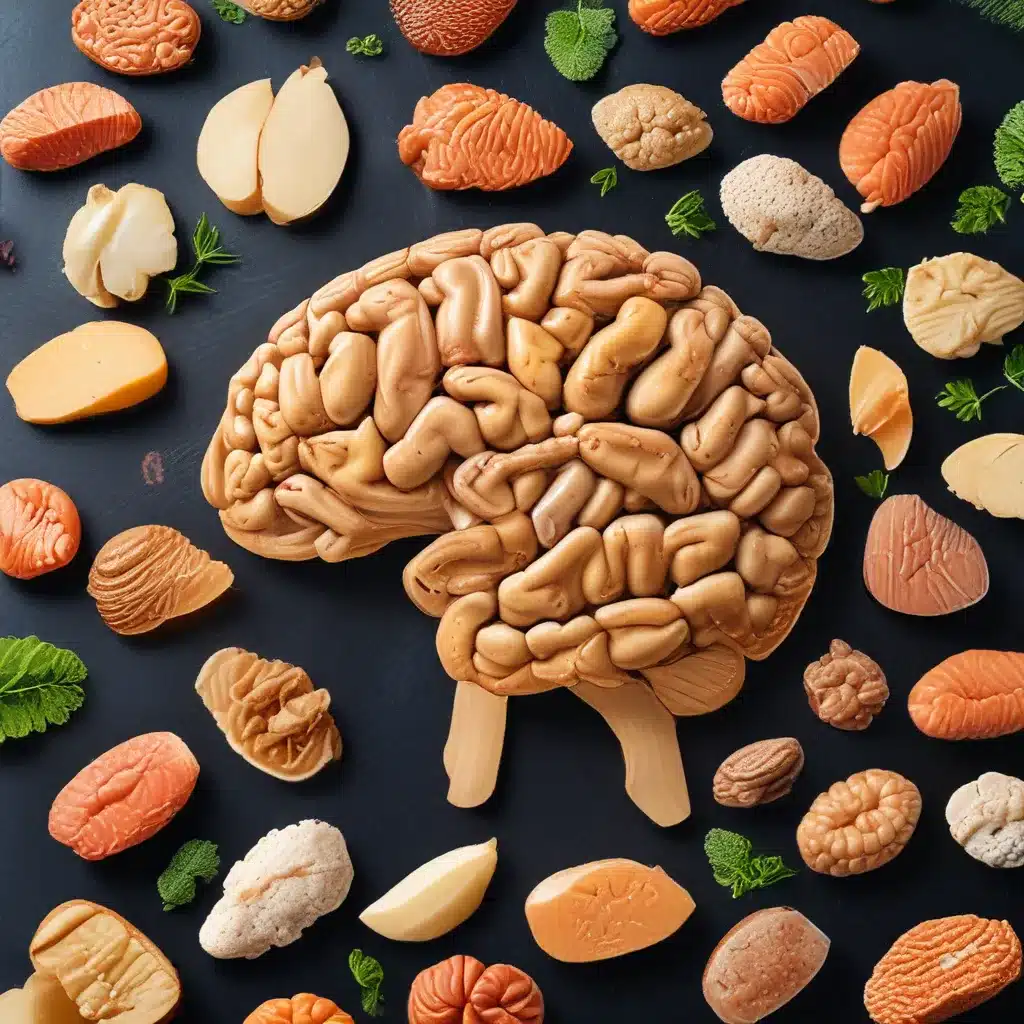
Feeding My Mind, One Bite at a Time
As a busy professional navigating the demands of modern life, I’ve always been keenly aware of the importance of maintaining a healthy lifestyle. But in recent years, I’ve become particularly fascinated by the role that nutrition plays in supporting cognitive function and brain health. And let me tell you, my friends, the more I’ve learned, the more I’ve realized that the humble omega-3 fatty acid is a true superhero when it comes to nourishing our most important organ – the brain.
The Brain-Boosting Benefits of Omega-3s
Now, I know what you’re thinking – “Omega-3s? Isn’t that just something they put in fish oil supplements?” Well, yes and no. Omega-3s are indeed found in abundance in certain types of fish, like salmon, mackerel, and sardines. But these remarkable molecules can also be found in a variety of plant-based sources, from walnuts and chia seeds to flaxseeds and algae. And the benefits they offer for our brain health are truly astounding.
Research has shown that omega-3s play a crucial role in supporting cognitive function, memory, and overall brain health. These essential fatty acids are integral to the structure and function of brain cells, helping to maintain the integrity of the cell membranes and facilitating the transmission of electrical signals between neurons. They also have potent anti-inflammatory properties, which can help to reduce the risk of cognitive decline and neurodegeneration.
But the benefits of omega-3s don’t stop there. Studies have also linked higher omega-3 intake to improved mood, reduced risk of depression, and even enhanced cognitive performance in healthy individuals. It’s no wonder that these little powerhouses have become the darlings of the nutrition world!
Omega-3s and the Aging Brain
As we get older, our brains can become more vulnerable to the effects of aging, and maintaining optimal brain health becomes even more crucial. Recent research has shown that certain omega-3 fatty acids, like EPA and DHA, may be particularly beneficial for individuals with heart disease, as they can help to improve brain function and cognitive performance. And let’s be honest, as we navigate the inevitable ups and downs of the aging process, any little bit of extra brain power can be a game-changer.
But it’s not just about maintaining cognitive function as we get older. Omega-3s have also been linked to a reduced risk of developing age-related cognitive disorders, such as Alzheimer’s disease and dementia. By supporting neuronal health and reducing inflammation, these incredible molecules can help to preserve our mental faculties and keep our minds sharp, even as the years go by.
Sourcing Omega-3s in the Modern Diet
Now, I know what you’re thinking – “Okay, this all sounds great, but how can I make sure I’m getting enough omega-3s in my diet?” Well, fear not, my friends, because there are plenty of delicious and nutritious ways to incorporate these brain-boosting powerhouses into your daily routine.
One of the easiest and most accessible sources of omega-3s is, of course, fatty fish. The Thornapple Community Supported Agriculture (CSA) service offers a fantastic selection of sustainably-sourced seafood, including wild-caught salmon, mackerel, and tuna – all of which are rich in omega-3 fatty acids. And let’s not forget about plant-based options, like walnuts, flaxseeds, and chia seeds, which can be easily incorporated into everything from smoothies and salads to baked goods and cereals.
But if you’re like me and you’re always on the go, you might find that getting enough omega-3s can be a bit of a challenge. That’s where supplements can come in handy. Look for high-quality fish oil or algae-based supplements that are third-party tested for purity and potency. And remember, it’s always best to consult with your healthcare provider before starting any new supplement regimen.
Putting it All Together
So, there you have it – the amazing, brain-boosting benefits of omega-3 fatty acids. From supporting cognitive function and preserving mental sharpness to reducing the risk of age-related cognitive decline, these remarkable molecules are truly the MVPs of brain health.
But the real key, my friends, is to make omega-3s a regular part of your overall healthy lifestyle. Incorporate them into your diet through delicious, nutrient-dense foods, or consider a high-quality supplement to fill in any gaps. And don’t forget to pair your omega-3 intake with other brain-healthy habits, like regular exercise, stress management, and quality sleep.
Because when it comes to nourishing our most important organ, I believe that every bite – and every sip – counts. So, let’s get out there and start feeding our minds, one delicious morsel at a time.



